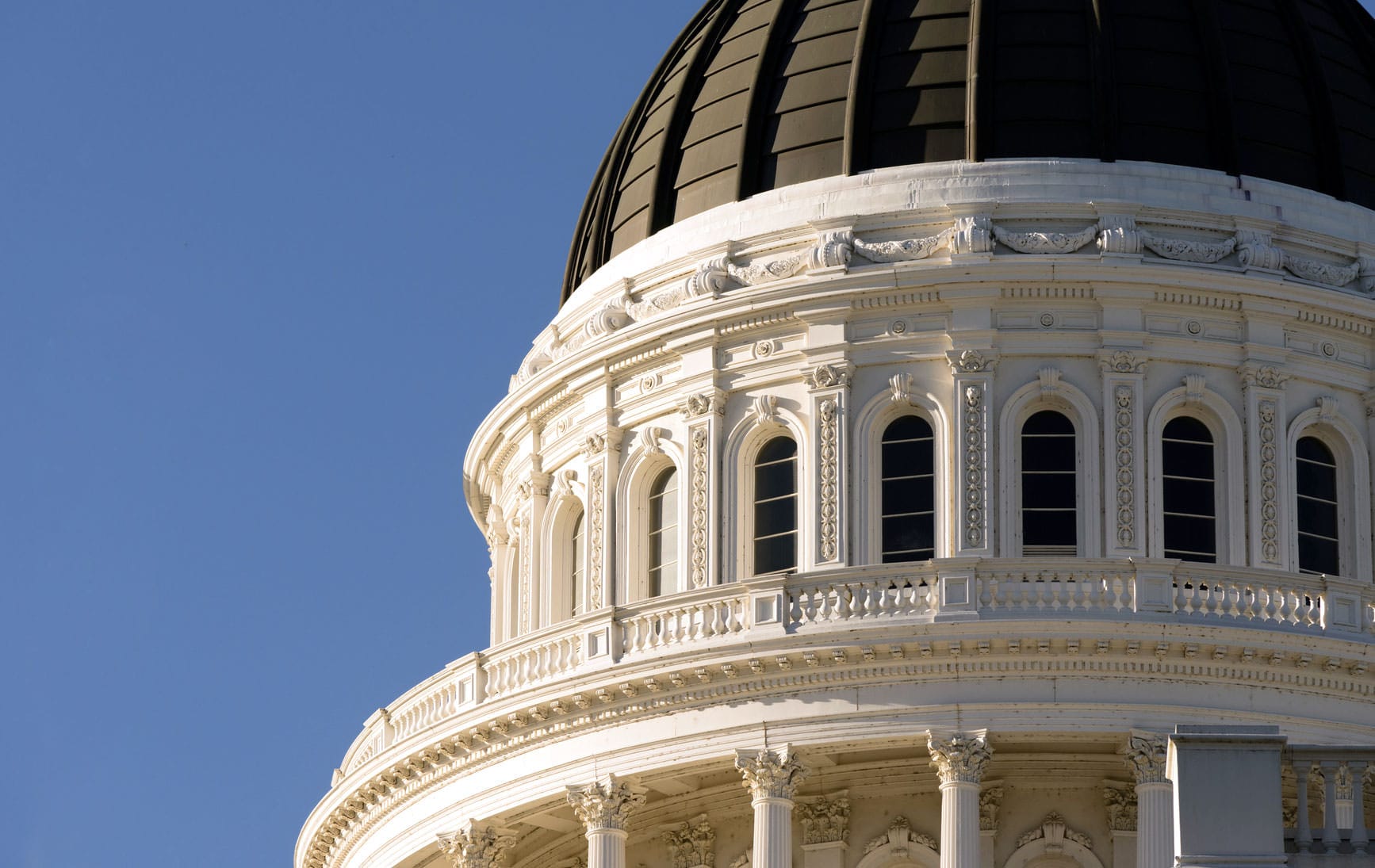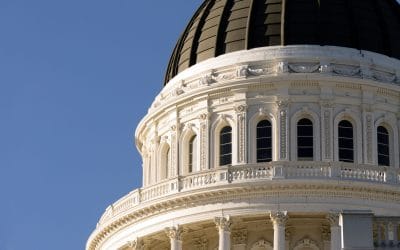School start time bill overcomes broad opposition. After seeing his previous effort vetoed by Governor Brown, Senator Anthony Portantino (D-La Cañada Flintridge) had better luck under the new Governor. SB 328 prohibits middle schools and high schools, including those operated as charter schools, from starting school earlier than 8:00 a.m. and 8:30 a.m., respectively. Rural districts are exempt from the bill’s requirements, though the term remains undefined in California Education Code. Affected schools may still offer classes earlier than the required start times, but may not claim average-daily- attendance (ADA). The bill takes effect on July 1, 2022, or the date on which a school district’s or charter school’s collective bargaining agreement that is operative on January 1, 2020, expires, whichever is later.
The author and bill’s supporters centered their argument around research showing the disproportionate adverse impacts that sleep deprivation has on adolescents. Later start times, supporters contended, would negate those impacts. While few disputed the findings, opponents of the proposal, including a broad array of school labor and management organizations, argued that school start times are, and should remain, a local community decision. Despite concerns over impacts to transportation opportunities for students, before and after school programs, and drop off and pick up times, Senator Portantino was able to leverage the research and his position as chair of the Senate Appropriations Committee to move the bill to Governor Newsom, who signed it. We expect to see efforts to clarify the bill’s provisions in 2020.
Disciplinary actions based on willful defiance continue to narrow. Citing the adverse impacts that suspensions and expulsions have on student outcomes, and the disproportionate use of willful defiance to justify suspending students of color, Senator Nancy Skinner (D-Berkeley) authored SB 419. The bill, beginning July 1, 2020, extends the current ban on suspending students enrolled in Kindergarten or grades one through three for disrupting school activities or willfully defying authorities to include 4th and 5th graders. It also extends the ban, but only until July 2025, to students in grades 6 through 8. Charter schools will also be subject to these new rules beginning July 1, 2020. This bill enjoyed a broad array of support, including local educational agencies (LEAs) and civil rights and social justice groups.
The Governor signed the following governance and operations bills:
District Boundaries/Student Transfers
- AB 849 (Bonta) – Elections: city and county redistricting
Current law establishes criteria and procedures pursuant to which cities and counties adjust or adopt council and supervisorial district area boundaries for the purpose of electing members of the governing bodies. This bill requires the governing body of each of those local jurisdictions to adopt new district boundaries after each federal decennial census and specifies redistricting criteria and deadlines for the adoption of new boundaries by the governing body. The bill also requires the governing body to take specified steps to encourage the residents of the local jurisdiction to participate in the redistricting process.
Chapter 557, Statutes of 2019 - AB 1127 (Rivas, Luz) – Interdistrict attendance: prohibition on transfers by a school district of residence
AB 1127 requires a school district of residence to approve an intradistrict transfer request for a victim of an act of bullying. The bill also prohibits a school district of residence, regardless of whether there is an agreement or permit, from prohibiting the interdistrict transfer of a victim of an act of bullying if there is no available school for an intradistrict transfer and the school district of proposed enrollment approves the application for transfer.
Chapter 781, Statutes of 2019
Elections
- AB 17 (Salas) – Elections: vote by mail ballots
Current law requires employers, to allow voters to take up to two hours off of work, without loss of pay, to vote. This bill would prohibit an employer from requiring or requesting that an employee bring the employee’s vote by mail ballot to work or vote the employee’s vote by mail ballot at work.
Chapter 223, Statutes of 2019 - AB 220 (Bonta) – Political Reform Act of 1974: campaign funds: childcare costs
The Political Reform Act of 1974 prohibits the use of campaign funds to pay for professional services not directly related to a political, legislative, or governmental purpose. This bill authorizes the use of campaign funds to pay for childcare expenses resulting from a candidate engaging in campaign activities.
Chapter 384, Statutes of 2019 - AB 1666 (Reyes) – The California Complete Count: local educational agencies
AB 1666 requires the California Complete Count – Census 2020 Office to partner with local contracted educational agencies to make information about the 2020 federal decennial census available to students and their parents or guardians at schools.
Chapter 560, Statutes of 2019
Governance/Operations
- AB 272 (Muratsuchi) – Pupils: use of smartphones
This bill explicitly authorizes the governing body of a school district, a county office of education (COE), or a charter school to adopt a policy to limit or prohibit the use by its pupils of smartphones while the pupils are at a schoolsite or while the pupils are under the supervision and control of an employee or employees of that school district, COE, or charter school. The bill also specifies circumstances in which a pupil could not be prohibited from possessing or using a smartphone, including in the case of an emergency or in response to a perceived threat of danger or when the possession or use of a smartphone is required in a pupil’s individualized education program (IEP).
Chapter 42, Statutes of 2019 - AB 543 (Smith) – Education: sexual harassment: written policy: posters
This bill requires each educational institution to provide their written policy on sexual harassment as part of an orientation program for continuing students, and requires each schoolsite in a school district, COE, or charter school, serving pupils in any of grades 9 through 12, to create a poster that notifies pupils of that policy and to prominently and conspicuously display the poster in each bathroom and locker room.
Chapter 428, Statutes of 2019 - AB 709 (Bonta) – School districts: governing boards: pupil members
This bill would require a pupil member of the governing board of a school district maintaining one or more high schools to be appointed to subcommittees of the governing board in the same manner as other board members, require a pupil member to be made aware of the time commitment required to participate in subcommittee meetings and work, and authorize a pupil member to decline an appointment to a subcommittee.
Chapter 437, Statutes of 2019 - AB 711 (Chiu) – Pupil records: name and gender changes
AB 711 requires a school district, charter school, or COE to update a former pupil’s records to include the pupil’s updated legal name or gender if the school district, charter school, or COE receives government-issued documentation, as described, demonstrating that the former pupil’s legal name or gender has been changed.
Chapter 179, Statutes of 2019 - SB 328 (Portantino) – Pupil attendance: school start time
This bill requires the schoolday for middle schools and high schools, including those operated as charter schools, to begin no earlier than 8:00 a.m. and 8:30 a.m., respectively, by July 1, 2022, or the date on which a school district’s or charter school’s respective collective bargaining agreement that is operative on January 1, 2020, expires, whichever is later. Rural school districts are exempt from the bill’s provisions.
Chapter 868, Statutes of 2019
PRA/Government Code 1090
- AB 903 (Levine) – Political Reform Act of 1974
The Political Reform of Act of 1974 defines “expenditure” to include any monetary or nonmonetary payment made by any person that is used for communications that expressly advocate the nomination, election, or defeat of a clearly identified candidate or candidates, or the qualification, passage, or defeat of a clearly identified ballot measure but excludes from the definition the costs incurred by a broadcasting station to cover or carry a news story, commentary, or editorial, and the costs incurred in publishing a regularly published newsletter or periodical whose circulation is limited to an organization’s members, employees, shareholders, other affiliated individuals, and those who request or purchase the publication. This bill would provide that this exclusion from the definition of “expenditure” does not apply to communications paid for with public moneys by a state or local government agency.
Chapter 102, Statutes of 2019 Student Discipline - SB 419 (Skinner) – Pupil discipline: suspensions: willful defiance
Current law prohibits the suspension of a pupil enrolled in kindergarten or any of grades 1 to 3, inclusive, and recommending the expulsion of a pupil enrolled in kindergarten or any of grades 1 to 12, inclusive, for “willful defiance,” or disrupting school activities or otherwise willfully defying the valid authority of those school personnel engaged in the performance of their duties. SB 419, commencing July 1, 2020, would extend this prohibition to pupils enrolled in grades 4 and 5 indefinitely and to pupils enrolled in grades 6 to 8, inclusive, until July 1, 2025. The bill also, commencing July 1, 2020, applies these provisions to charter schools.
Chapter 279, Statutes of 2019




0 Comments